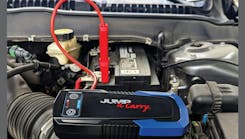24 internal financial controls every small business should have in place
The 2022 Association of Certified Fraud Examiners (“ACFE”) Report to the Nations shows that small businesses (those with fewer than 100 employees) experienced the highest median loss from fraud—over $150,000. The schemes that impacted small businesses more than large companies were incidents of “skimming and check and payment tampering.” Plus, there were many cases of financial fraud involving billing, payroll, expense reimbursements, and cash larceny.
Nearly half of the fraud incidents were, according to the ACFE report, due to a lack of internal controls and the override of existing controls. That is why it is imperative for small businesses to implement and enforce financial controls in their companies.
What are financial controls?
Financial controls are internal processes designed to identify and prevent fraudulent actions at your company. Businesses implement financial controls (manually or using software, or both) to ensure accounting mistakes are not incorporated into their financials. Think of financial controls as a safety net for your small business, thwarting embezzlement, theft, and fraud. Unfortunately, many small businesses don’t have the knowledge, time, or trained personnel to implement proper financial controls.
Of course, there are no guarantees that you can eliminate fraud in your company, but having these 24 financial controls in place should help mitigate your risk exposure.
1. Keep business and personal finances separate
Never co-mingle your business and personal finances. This is a common mistake many startup business owners make.
This also means not using your personal credit card for business transactions. If you don’t qualify for a business credit card, you can use a personal card, but make sure you only charge business expenses to it.
And if you loan money to your business or take a loan from your business, document it appropriately with a promissory note specifying repayment terms.
2. Review your business's monthly bank statements in detail
Reconcile company records with your bank statements. Have your statements sent directly to your personal email or home address.
3. Create monthly cash flow projections
If your actual cash flow falls short of your monthly projections, investigate why. Once a quarter, compare the cash flow for the quarter to your annual budget projections. Don’t put off investigating any discrepancies.
4. Review all credit and debit card statements for accuracy
Using payment cards for business expenses can simplify accounting and tax preparation. However, the more employees have company credit cards, the greater the chance of fraud. Require your employees to provide receipts for their credit card purchases. (See No. 17).
5. Review all outgoing payments
Compare payments to invoices. Watch for duplicate invoices, new vendors, or multiple invoices from the same vendor in a short time period. Embezzling employees often use these tactics to pay themselves.
6. Monitor point-of-sale transactions
Count the cash in the cash drawer at the beginning and end of each business day. Using point-of-sale software that requires employees to log in so you can track who is on the register at any given time reduces the risk of theft.
7. Set up inventory control systems
Inventory is often damaged, stolen, or lost. Inspect and count incoming inventory to make sure your orders were filled accurately. Designate a trusted employee to sign for incoming inventory and release outgoing inventory. Regularly conduct an internal inventory of your products or materials.
8. Review payroll before it goes out
Watch for any variations in the amounts distributed. Use direct deposit to reduce your risk of payroll fraud. Hiring a third-party payroll provider can also reduce fraudulent activity.
9. Monitor your use of debt
Your accountant can help you set a maximum debt-to-equity ratio and a minimum debt-to-cash flow ratio. Stay within these bounds to keep your business from becoming overleveraged.
10. Conduct background checks before you hire new employees
This is especially important for employees whose job responsibilities involve finances, such as bookkeeping, accounting, payroll, or handling cash.
11. Approve new hires before adding them to the payroll
You should approve all new hires before they are added to the payroll. Don’t delegate this responsibility. Follow up by reviewing payroll reports for each pay period and checking for unusual amounts and unfamiliar names.
12. Regularly update your passwords
Require your employees to choose unique passwords and change them quarterly. Make sure you have a record of the passwords so that you can access any work computers.
13. Check up on employees involved with your business finances
Require these employees to take annual vacations and have someone else handle their duties while they’re gone. This is a common way to uncover embezzlement.
Employees who embezzle often inadvertently reveal their crimes by showing up with expensive jewelry or a new car or bragging about new personal purchases. But, of course, there could be an innocent explanation for all that, so don’t accuse people without due cause.
14. Don’t put one person in charge of petty cash
All petty cash disbursements should be authorized by two employees. Record all transactions, and balance the petty cash once a week. Limit how much petty cash can be withdrawn by one employee in a week. Any exceptions should be signed off by you.
15. Delegate financial duties to multiple employees
If one person is in charge of all your business financials, such as bookkeeping, payments, and payroll, it's much easier for them to steal from your business.
16. Limit access to your financial systems
With the exception of perhaps a few employees (your CFO or controller), your financial team does not need access to all your financial data. Give employees log-in access only to the areas pertinent to their roles.
17. Create expense reimbursement requirements
Establish a maximum cash limit for reimbursements that can be submitted without a receipt ($20 to $25 is standard).
18. Implement check signing processes
As the business owner, you should sign all outgoing checks and digital payments if possible. If that’s not practical, all checks should require two signers, and at least one should be a long-time trusted employee.
Any payment over a certain amount should be authorized or signed by you.
19. Double-check cash deposits
If you have employees making cash deposits, have two or three employees double-count the money first. And check that amount against the deposit receipt.
20. Require vendors to submit detailed invoices
Avoid vague language on invoices. Require multiple approvals for adding a new vendor to your system, one of whom should be you.
21. Don’t be predictable
Let the element of surprise work for you when watching for employee misconduct. Perform your financial reviews and audits at random times.
22. Secure business credit before you need it
You never know when you’ll need to access cash. Whether you experience a sudden cash-flow crunch or discover an opportunity that requires a cash outlay, do you have financial resources you can tap, such as a business line of credit? The best time to apply for a business line of credit is before you actually need it.
23. Conduct independent reviews of your finances
Have an independent reviewer regularly examine your financial reports. Your accountant or CPA is ideal for this job.
24. Invest in technology
Buy a robust accounting software system to help you stay on top of your accounts and expenses. Many software systems today come with robust reporting features and financial dashboards so you can check your financial status at a glance.
This article originally appeared on score.org.


